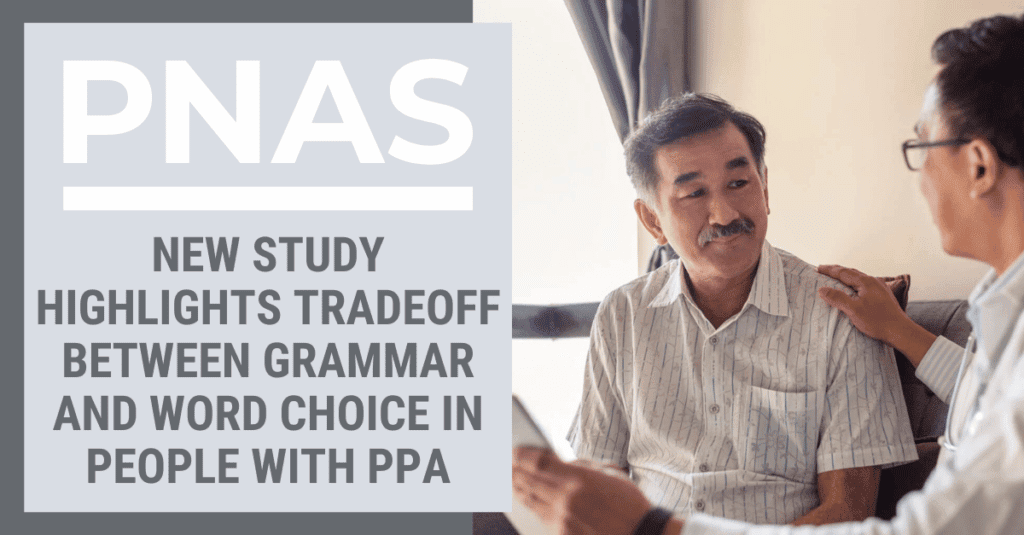New Study Highlights Tradeoff Between Grammar and Word Choice in People with PPA

A study published in the medical journal Proceedings of the National Academy of Sciences revealed some ways that the people living with primary progressive aphasia compensate for certain communication difficulties.
According to a summary of the study, people typically try to maintain a balance between complex word choices and grammar when communicating.
When encountering difficulty with choosing complicated words, people tended to compensate by using less complicated vocabulary but more complex grammar. People with difficulty using intricate grammar in a sentence used more complex and descriptive word choices while shortening their sentences.
People diagnosed with PPA tend to compensate by sticking with either complex words or complicated grammar in the long term, depending on which variant of PPA the individual has. Individuals without PPA tend to alternate how they compensate between sentences.
“We are moving beyond simplistic descriptions of patients’ difficulties with communication such as ‘fluent’ or ‘non-fluent’ aphasia,” said Brad C. Dickerson, MD, a professor at Harvard’s Department of Neurology, and the chairperson of AFTD’s Medical Advisory Council. “This work highlights the importance of quantifying the ways patients use words and sentences to communicate thoughts. We plan to harness these methods to evaluate emerging treatments for patients with PPA with the ultimate goal of helping them communicate better for longer.”
By Category
Our Newsletters
Stay Informed
Sign up now and stay on top of the latest with our newsletter, event alerts, and more…
